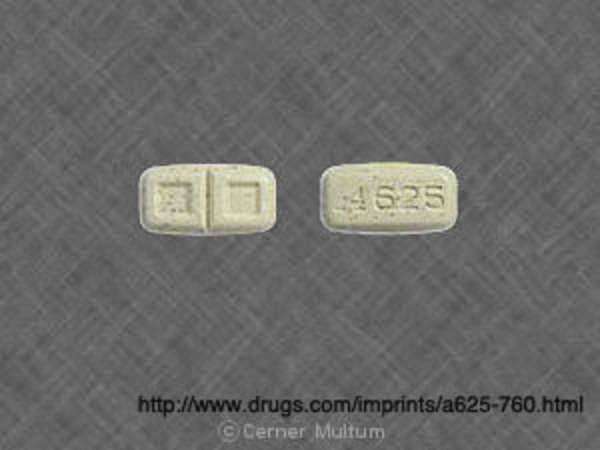Pergolide-Permax
What is Pergolide?

Also referred to as Permax, Pergolide is an ergoline-based dopamine receptor used in some countries for the treatment of Parkinson’s disease.
Parkinson’s is associated with abnormally low levels of the neurotransmitter dopamine in the brain Pergolide (commercial name Permax) attempts to mimic—and yield similar effects--as dopamine in the body.
Although effective in numerous case studies, Pergolide was withdrawn from the United States consumer markets for human use. The ban came after several published studies revealed a link between Pergolide and increased rates of valvular dysfunction. Although banned for human use, Pergolide is applied for use in animals, particularly horses, to treat Cushing’s syndrome.
Pergolide (Permax) is provided via oral administration in tablets. With Pergolide acting as the base, the tablets utilize microcrystalline cellulose, magnesium stearate, lactose monohydrate, sodium starch glycolate and pregelatinized starch.
As a dopamine receptor agonist, Pergolide (Permax) is 10 to 1000 times stronger than bromocriptine on a milligram per milligram basis. Pergolide (Permax) impedes the secretion of prolactin in human beings; Pergolide (Permax) causes a transient increase in serum concentrations of growth hormones and a steady decrease in serum concentrations of luteinizing hormones. To combat Parkinson’s disease, Pergolide (Permax) is thought to exert a therapeutic effect by stimulating post-synaptic dopamine receptors in the body’s nigrostriatal system.
Is Pergolide Banned Throughout the World?
Pergolide (Permax) is not available in the United States; however, it is still commonly used in a handful of countries for the treatment of various conditions, including restless leg syndrome, hyperprolactinemia and Parkinson’s disease. Moreover, Pergolide (Permax) is also used for veterinary purposes—the drug is commonly used to treat pituitary par intermedia hyperplasia or—as stated above—Equine Cushing’s Syndrome in horses.
Side Effects of Pergolide:
Pergolide, which has significantly decreased with regards to circulation and use, is commonly associated with a form of heart disease called cardiac fibrosis. In 2007, the Food and Drug Administration declared a voluntary withdrawal of Pergolide (Permax) by manufacturers because of the increased possibility of heart valve damage. As stated above, Pergolide (Permax) is not available in the United States.
The dangerous side effects yielded by Pergolide (Permax) are thought to be caused by the drug’s action at the 5-HT serotonin receptor of cardiac myocytes; this effect causes proliferative valve disease in a similar manner to other serotonin agonists. Pergolide (Permax) can also cause Raynaud’s phenomenon and impair associative learning.
Patients using Pergolide (Permax) commonly report falling asleep while engaged in daily activities, including driving a car. Although a number of patients reported somnolence while taking Pergolide (Permax), a large percentage reported a lack of warning signs such as drowsiness before falling asleep.
In Clinical trials, roughly 10% of patients taking Pergolide (Permax) exhibited signs of symptomatic hypotension, especially during the initial phases of treatment. With gradual increase of Pergolide (Permax), patients grew tolerant of the hypotension. It is therefore necessary to be cognizant of the risk; treatment must begin with low doses and only increase if the patient can tolerate hypotension. Typically, dosage is increased over a period of 3 to 4 weeks.
In controlled tests, Pergolide (Permax) caused hallucinations in roughly 15% of patients. The hallucinations were intense enough to cause a discontinuation in roughly 3% of those affected.
I a placebo-controlled test, 2 of 187 patients treated with Pergolide (Permax) died. Of the 2,3000 patients treated with Pergolide (Permax) in premarketing tests (conducted in the late 1980’s), 143 patients died while under the drug or shortly after taking it. Because the patient population under evaluation was ill, elderly, and/or facing increased risks of death, it was affirmed that Pergolide (Permax) played a minor role in these fatalities. However, the possibility that Pergolide (Permax) shortens survival times cannot be excluded with absolute certainty.
In addition to the physical ailments caused by Pergolide (Permax), the drug has reported to cause unique psychological alterations. In Britain, for example, select users of Pergolide (Permax) claim that the drug has caused them to develop severe gambling addictions. In June of 3010, similar reports surfaced in Australia; users of Pergolide (Permax) are suing the manufacturer over both gambling and sex addiction problems they claim resulted from the use of the drug.
In March of 2007, manufacturers of Pergolide (Permax) agreed to withdraw the medication from the United States after a number of published studies revealed a link between the drug and heightened rates of valvular dysfunction.
In addition to the aforementioned side effects, Pergolide (Permax) causes a significant decrease in appetite during the first week of use. Other side effects commonly associated with Pergolide (Permax) include: anemia, respiratory infections, hallucinations, dizziness, headache and low blood-pressure.
Pergolide (Permax) Recall and Legal Information:
A gradual recall of Pergolide (Permax) was announced on March 30th of 2007. The recall was announced by officials within the United States Food and Drug Administration and came after a decade of progressively increased warnings by both the Food and Drug Administration and the drug’s parent company, Eli Lilly.
If you or a loved one has suffered a serious injury or death as a result of Pergolide (Permax), you must immediately contact a law firm that specializes in mass torts, drug side effect lawsuits or personal injury laws. These types of law firms will handle Pergolide (Permax) associated legislation in all 50 states throughout the U.S.
Those victims filing lawsuits against manufacturers of Pergolide (Permax) commonly seek compensation for the following side effects:
1.Primary Pulmonary Hypertension
2.Heart-Valve Damage (Mitral and Aortic Valve injuries)
3.Valvular heart diseases
4.Cardiac valvulopathy
5.Leaky heart valves
6.Pulmonary fibrosis (pleural, pericardial and/or retroperitoneal fibrosis)